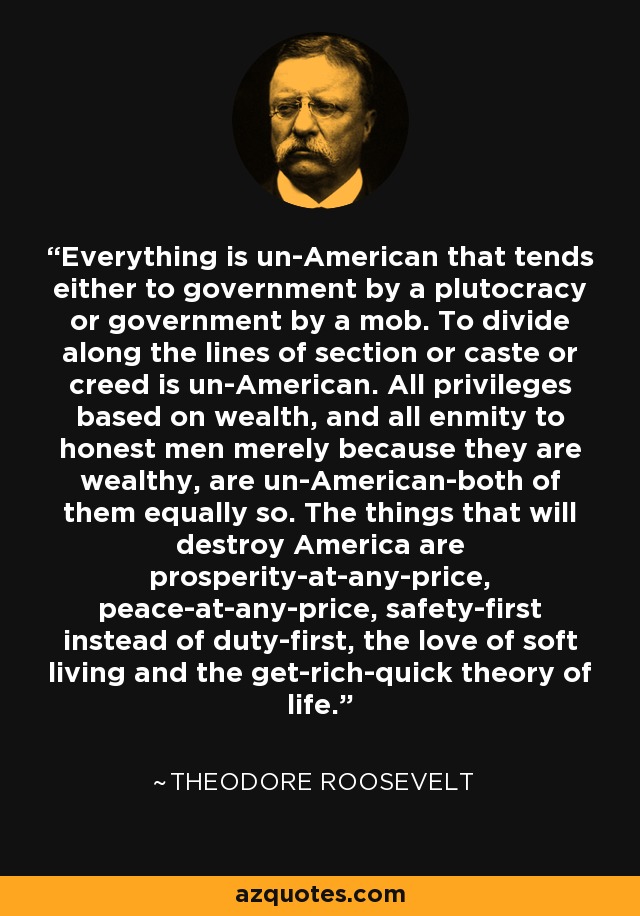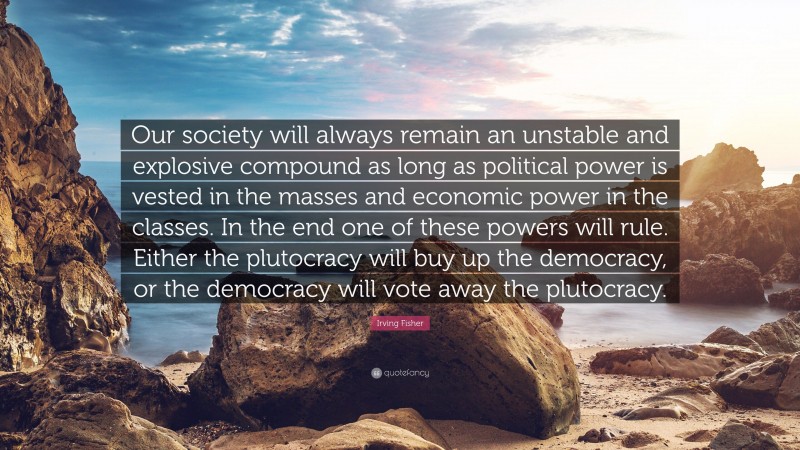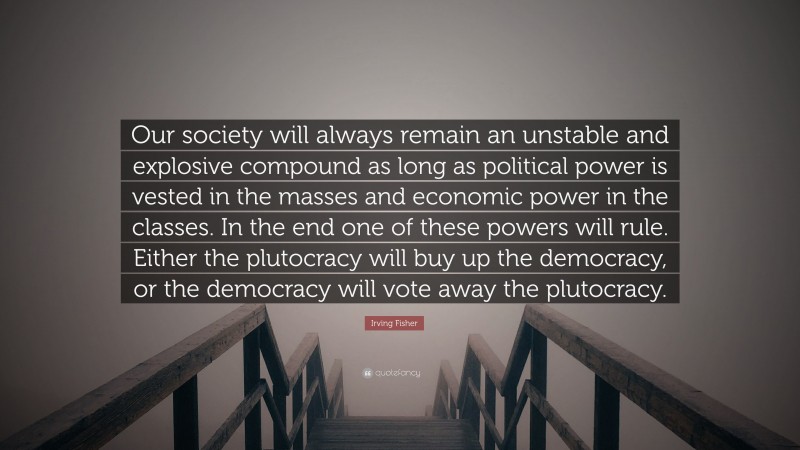

The middle class doesn’t want hand-outs from condescending rich people. Indeed, the complaint that today’s elite lack the noblesse oblige of the aristocrats of old, and are therefore risking public anger, seems to badly misread American public opinion.

It’s striking how little inchoate public rage has actually boiled to the surface in the rich world….In America, the language of the angriest is very similar to that of the plutocrats themselves. Perhaps, rather than attempting to stand between Wall Street and any hypothetical pitchforks, Mr Obama should have gotten out of the way. To the extent any pitchforks have been seen, they were applied to the Democrats’ behinds last November.
#Plutocracy quotes free
And while that limits her book somewhat, it doesn’t diminish the value of the fascinating and well-informed analysis she provides.Fight disinformation: Sign up for the free Mother Jones Daily newsletter and follow the news that matters.įrom Matt Steinglass, commenting on Chrystia Freeland’s “global elites”:īack in mid-2009, Barack Obama told the assembled plutocrats of Wall Street that they ought to be more grateful to him he was “the only thing standing between you and the pitchforks.” The plutocrats smiled, and departed by helicopter. This, however, would enter into the kind of political argument Freeland wants to avoid. Even more disappointing is the lack of discussion about the social benefit of what the “working rich” do for a living. But despite her critical conclusion, which focuses on the potential for today’s economic inequalities to calcify into a rigid new caste system, Freeland is reluctant to enter into a debate over the extent to which the current system can be called a meritocracy. As one would expect from Freeland, a veteran journalist who also wrote Sale of the Century: Russia’s Wild Ride from Communism to Capitalism, it’s a fun read, though occasionally marred by repetition.įreeland observes that the super rich are mostly individuals who found themselves at the right place at the right time, and she quotes a number of the more honest plutocrats, who confess to the important role luck has played in their success. The book is nicely arranged into chapters dealing with different themes (historical context, culture), and seamlessly integrates the latest academic research. Iwill always fight for progress and reform, never tolerate injustice or corruption, always fight demagogues of all parties, never belong to any party, always oppose privileged classes and public plunderers, never lack sympathy with the poor, always remain devoted to the public welfare, never be satisfied with merely printing news, always be drastically independent, never be afraid to attack wrong, whether by predatory plutocracy or predatory poverty. A subsidiary economy of “superstars” has evolved to service this elite, but for the most part, at least in North America, the middle class has been running a lot harder just to stand still. In brief, our Second Gilded Age is the product of advances in technology, globalization, and deregulation, and the new captains of industry are predominantly “alpha geeks” (it is an almost exclusively male club) working in the fields of finance and the Internet. Perhaps the chief virtue of Plutocrats is that, despite being a financial reporter with access to exclusive corridors of power, author Chrystia Freeland does an admirable job staying relatively neutral in her informative account of the “new virtual nation of mammon.”įreeland focuses on the culture, ideology, and biographies of the 0.1 per cent (ultra high-net-worth individuals) while considering the larger historical changes that have allowed for their spectacular rise. That said, most of what has been written on the subject has come from authors with a partisan political agenda.

Perhaps the most frequently reported economic trend in recent years is the growth of global inequality and the rise of a super-rich overclass, indelibly dubbed “the one per cent” by the Occupy movement.


 0 kommentar(er)
0 kommentar(er)
